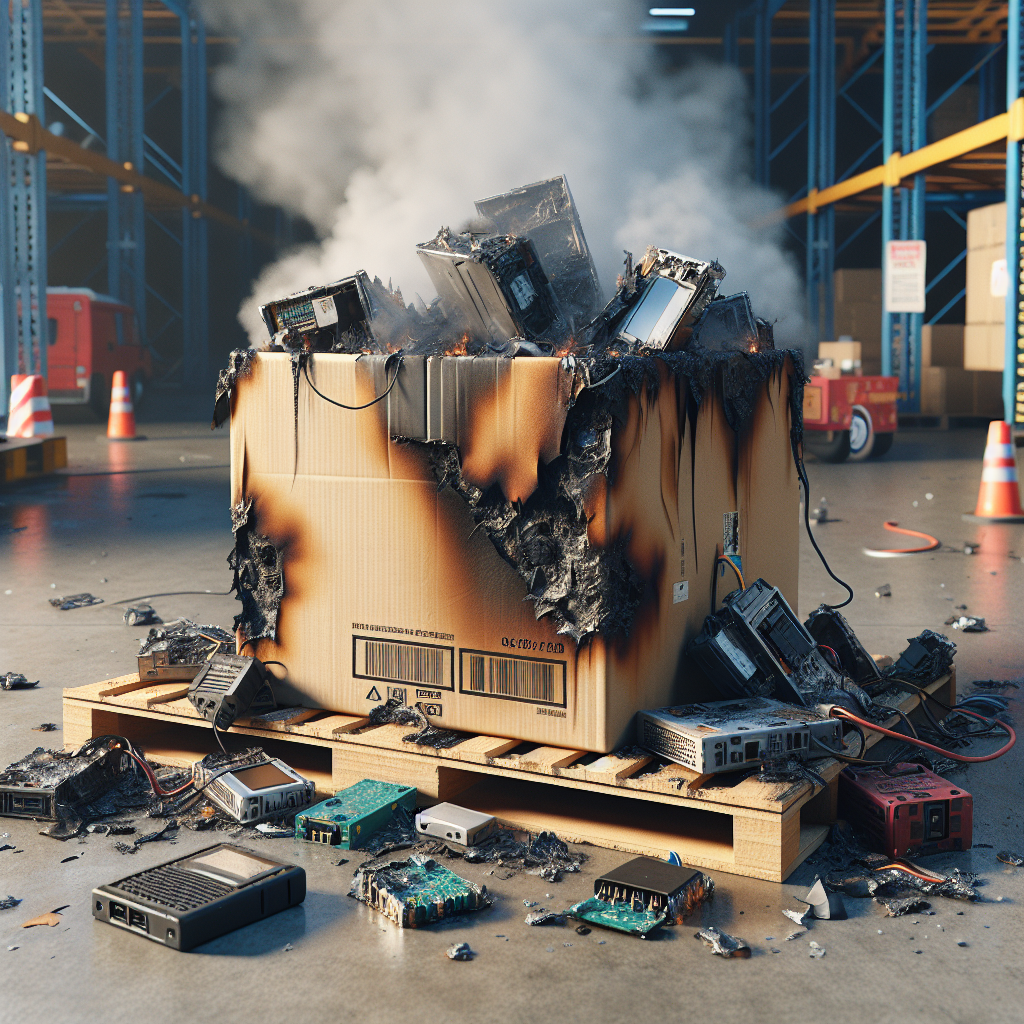
Emergency Response Thwarts Potential Disaster at Cargo Facility
Share
On the afternoon of July 9th, 2023, the sleepy town of Sumter, South Carolina, became the center of an urgent emergency response. At precisely 1:45 PM, the Sumter Municipal Airport's cargo sector (SMS), typically a bastion of logistic proficiency, was jolted into disarray. Ground crew members, working their routine handling of cargo shipments, noticed an alarming disturbance: smoke emanating from an ordinary-looking package amidst hundreds.
Pandemonium narrowly averted, the warehouse personnel swiftly cleared the vicinity as local firefighters and HAZMAT teams converged upon the scene. With skillful precision, they extracted the container in question to find its contents—an assortment of recycled personal electronic devices, illegally housing volatile lithium-ion batteries.
Investigators revealed charred husks of what used to be smartphones and tablets, narrowly rescued from setting the entire facility ablaze. Thanks to the prompt actions of the crew and emergency responders, catastrophe was avoided. The incident served as a stark reminder of the hidden dangers in seemingly innocuous parcels and the critical importance of proper declarations in cargo transport.
In the accident's wake, authorities and experts alike rallied to reiterate the necessity of adherence to safety protocols. Improper shipment of electronics with lithium-ion batteries poses a significant fire risk, especially when undisclosed or mishandled.

Discussions about potential safeguards have propelled innovative solutions to the forefront. Namely, the introduction of the FireTowel, a cutting-edge emergency response tool, exemplifies the industry’s adaptability and commitment to safety. Unlike traditional fire blankets, the FireTowel is engineered with an advanced, denser fabric and weighted perimeter, providing a hermetic seal that curtails smoke and fire spread. Equipped with handles for ease of deployment, the FireTowel allows for rapid containment of thermal events, such as those caused by malfunctioning batteries—importantly, even before firefighters arrive on the scene.
Investment in
